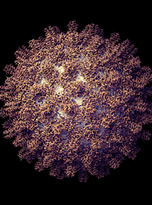Read and report vaccine reactions, harassment and failures.

Unlike other infectious diseases for which vaccines have been developed and mandated in the U.S., hepatitis B is not common in childhood and is not highly contagious in the same way as chickenpox and pertussis. Hepatitis B is primarily an adult disease transmitted most frequently through blood but can also be transmitted through other body fluids such as semen and vaginal secretions. Hepatitis B is NOT transmitted through sneezing, kissing, sharing food or utensils or breastfeeding. In many cases, transmission may be asymptomatic.
Those most at risk of hepatitis B include needle using drug addicts (illegal IV drug users); those who have sexual contact with a person infected with hepatitis B; sexually promiscuous heterosexual and homosexual adults; residents and staff of custodial institutions such as prisons; health care workers exposed to blood; hemodialysis patients, and infants born to infected mothers.
Transmission of hepatitis B from infected mother to infant has always been uncommon and continues to be uncommon in the U.S., primarily due to routine prenatal screening of all pregnant women for hepatitis B infection, which, in many states, is required by law. Infants of mothers who are found to be positive for hepatitis B or whose hepatitis B status is unknown are treated by immunoprophylaxis with hepatitis B immune globulin (HBIG) to prevent transmission from mother to baby.
IMPORTANT NOTE: NVIC encourages you to become fully informed about Hepatitis B and the Hepatitis B vaccine by reading all sections in the Table of Contents , which contain many links and resources such as the manufacturer product information inserts, and to speak with one or more trusted health care professionals before making a vaccination decision for yourself or your child. This information is for educational purposes only and is not intended as medical advice.



